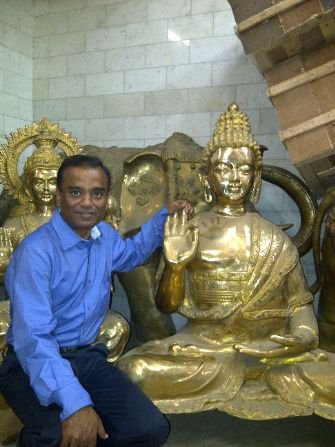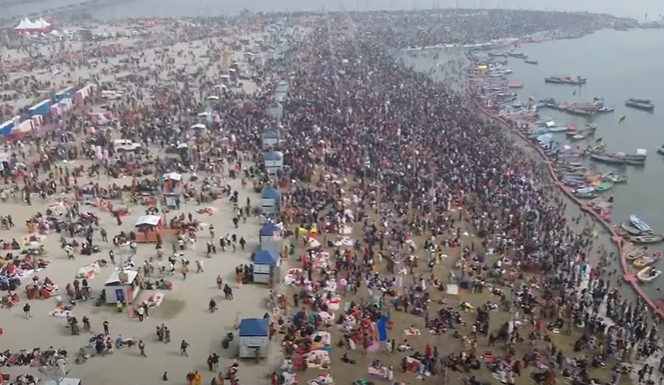Modi's India: A Vision, A Transformation, A Global Influence
-
 N Chandra
N Chandra
| Monday 19th of May 2025 02:54:30 AM (UTC)
- Category: Geopolitics

Modi's India: A Vision, A Transformation, A Global Influence
Examining the Transformative Leadership Of Narendra Modi: A Vision for India's Future
The world has focused on India in recent years, particularly observing the substantial changes under Prime Minister Narendra Modi's leadership. Modi, who took office in 2014, has been lauded and criticised for his approach to governance, economic reform, and international relations. While his tenure has witnessed significant domestic transformations, it has also influenced India's geopolitical stature on the global stage. Analysing the strategic shifts and realignments under Modi's leadership, one must consider how they have collectively shaped India's identity on the world map.
Narendra Modi's leadership is often characterised by a vision built on strong nationalism and an ambition to elevate India as a global power. This vision rests on several pillars, including economic revitalisation, social reforms, and technological advancement, all of which echo his broader goal of making India a key player in the international arena.
One critical aspect of Modi's domestic agenda has been economic reform. His administration initiated a series of initiatives to improve the ease of doing business and attract foreign investment. The introduction of the Goods and Services Tax (GST) was a landmark reform aimed at streamlining tax collection and eliminating bureaucratic red tape that had previously hindered business operations across the country. Though the implementation faced its share of challenges, it represented a significant shift towards a more unified market.
Another significant aspect of Modi's economic drive was the 'Make in India' initiative launched in 2014. This campaign prompted national and international companies to invest in manufacturing and create jobs within India, reducing the historical dependence on imports. Within this context, Modi's leadership has focused on promoting economic growth and inspiring entrepreneurship, innovation, and self-reliance among the Indian populace.
In conjunction with economic reforms, Modi's leadership has underscored the importance of digital technology in contemporary governance. His government has embraced digitalisation, enhancing government services through technology and promoting programs like Digital India. The aim is to ensure every citizen can access information, services, and opportunities in this rapidly digitising world. The focus on technology has improved transparency, reduced corruption, and facilitated greater public engagement with the government.
While Modi's domestic policies have sparked debates, his approach to foreign relations has been equally transformative, reshaping India's position in the global order. Under his leadership, India has actively sought to build stronger ties with its neighbours and beyond. The pivot towards the United States has marked a significant shift in India's foreign policy. The strategic partnership between the two nations under Modi's tenure has blossomed, encompassing defence, trade, and technological exchange.
As China continues to exert its influence in the region, India's alignment with the United States serves as a strategic counterbalance to maintain regional stability. The Quadrilateral Security Dialogue (Quad), comprising India, the U.S., Japan, and Australia, has emerged as a testament to this effort. This collective seeks to address various challenges in the Indo-Pacific region, reinforcing mutual security and economic interests.
Modi's leadership has strengthened India's ties with its Gulf neighbours and led to significant recognition of his efforts on an international platform. Countries like the United Arab Emirates and Saudi Arabia have honoured him with their highest civilian awards, a testament to the deepening of diplomatic relations and mutual respect between India and these countries.
For instance, in 2019, the UAE conferred the Order of Zayed on Modi, highlighting the commitment to cooperate in various fields such as Modi's defence, investment, and security. Similarly, India's Arabia awarded him the King Abdulaziz Order, underscoring the country's strategic importance in the region and mutual interests in tackling issues like terrorism and regional security.
These accolades celebrate Modi's leadership and vision, signalling the Gulf countries' understanding of India's role in the global landscape, especially in energy markets. Moreover, they reinforce ties between India's vast diaspora in the Gulf countries, paving the way for enhanced economic cooperation and job opportunities for Indian expatriates. This collaborative spirit is crucial for addressing shared concerns. It reflects Modi's aspiration for India to emerge as a significant player in global affairs while catering to the needs and aspirations of its robust community abroad.
On a broader scale, Modi's leadership has also sought to enhance India's soft power through cultural diplomacy. By promoting the country's rich heritage, Modi aims to cultivate a favourable global image of India, encouraging tourism, cultural exchanges, and the promotion of yoga and traditional medicine. This cultural outreach aims to showcase India's diversity and foster goodwill, further solidifying its standing on the international stage.
However, Modi's tenure has not been without its challenges. The government's handling of social issues, particularly those concerning religious and ethnic minorities, has faced intense scrutiny and opposition. Observers have raised concerns about increased polarisation and the erosion of secular values traditionally defining India's democratic framework. Balancing growth with social harmony remains an ongoing challenge for Modi's leadership as dissenting voices attempt to grapple with the rapidly transforming socio-political landscape.
Significant achievements have marked Narendra Modi's leadership. His vision of transformative change, aimed at positioning India as a global power, has led to notable economic resurgence, technological advancements, and a recalibrated foreign policy. While his tenure has sparked significant debates around inclusiveness and social equity, the comprehensive approach adopted by Modi's government has undeniably shaped India's global presence. As the world witnesses India's ascent, the interplay between national identity and international presence in future years will undoubtedly be influenced by the legacies of Modi's tenure.
Why do people worldwide call PM Modi a man with a vision for the nation?
His commitment to fostering a modern India while navigating a complex geopolitical landscape is the answer. Only time will reveal how the legacies of Modi's tenure will influence the nation's future trajectory and its global relationships. Whether lauded or critiqued, the impact of his leadership will undoubtedly echo in the annals of contemporary history, serving as a barometer for future Indian leaders and the aspirations of its people.
Start the conversation
Become a member of TxtTale to start commenting.
Already a member?
